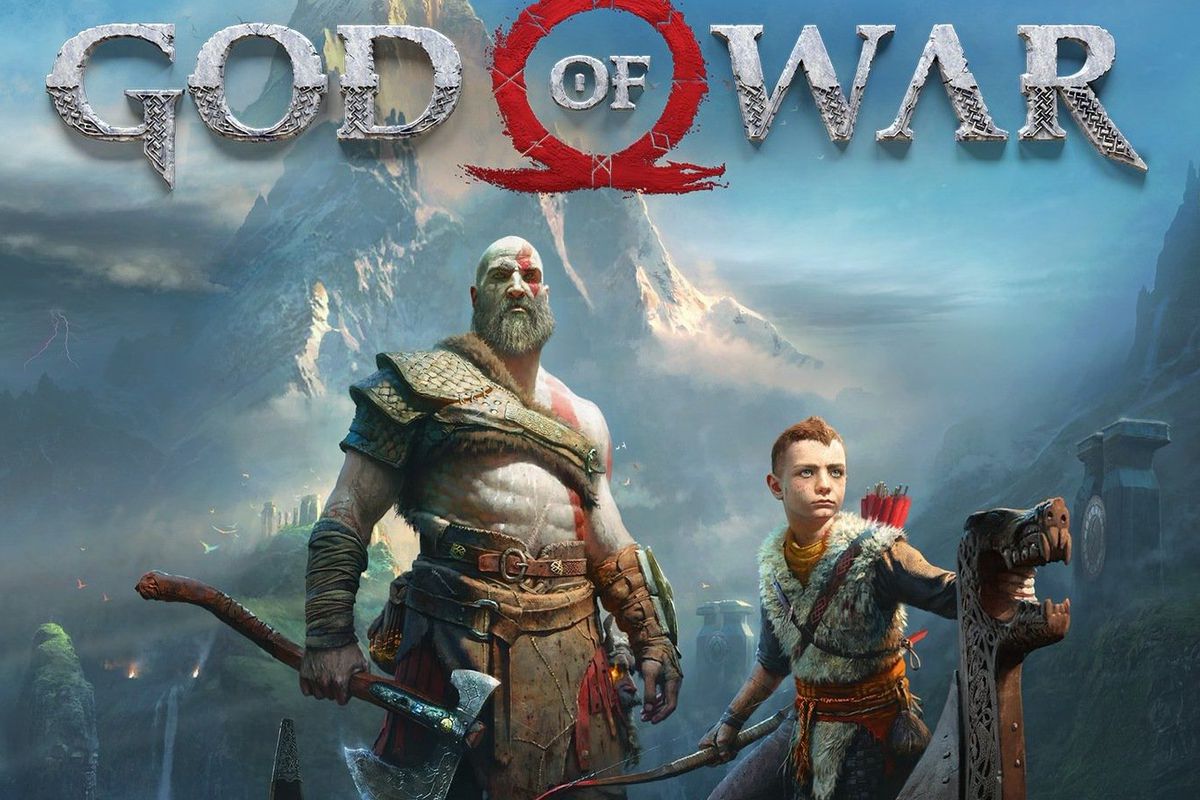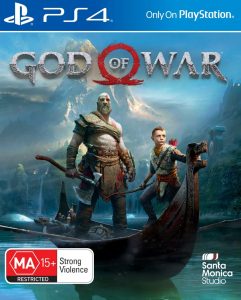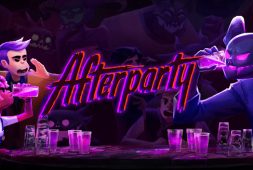
 God of War
God of War
Game Reviewed: God of War
Publisher: Sony Interactive Entertainment
Developer: Santa Monica Studios
Reviewer: Samuel Gronseth II
Platform(s): PS4
Category: Action
ESRB Rating: M
Game Description:
The God of War trilogy was a genre-defining series back in the day, but it was dormant for a long time before Sony decided to resurrect it on the PS4. It has quite a legacy to live up to, both because the original games are so beloved and because the protagonist, Kratos, was… awful.
The original trilogy was the story of Kratos, a Spartan who was manipulated by Ares, the Greek god of war, into doing his bidding and even killing his own family. The entire trilogy is a three-act tragedy about the emptiness of revenge and the consequences of letting anger lead your life, and while it faltered a bit in the middle it effectively got its point across. Unfortunately this also means that Kratos was a downright evil person, and since this is a video game the player had to act out a good number of brutal, horiffic acts of violence. Even if the games did ultimately condemn his actions, it was sometimes a bit much.
The new game, however, seeks to rectify that. It takes place many years later, when Kratos has moved far away and started a life with a wife and son. Kratos’ wife has died, however, and his son, Atreus, must journey to the top of the highest mountain in the land to scatter her ashes. This is complicated by the fact that the gods of this area, based on Norse mythology (think Marvel’s Thor, but significantly less sanitized), have realized he’s in the area and aren’t too keen on having a god-killer around. Kratos must fulfill his wife’s final wish while guiding his son into godhood; but the greatest danger isn’t the wild creatures or the angry gods, but Kratos’ fear that his son could end up just like him.
The original games weren’t family friendly in the slightest. But let’s see how this one holds up.
What Parents Need to Know
Violence:
While the game is mostly typical martial combat–Kratos wields an axe, as well as a few other martial weapons, and slices through enemies with some blood splatters but not typically any gore–it does have some special kill moves and boss encounters that are a bit more graphic. Some large troll enemies are killed by lodging the axe into their neck to pull them to the ground, then chopping into their open jaw. Zombie-like enemies can be killed by grabbing their heads and shoulders and ripping their chest open. Probably the most graphic is werewolf-like enemies who can be killed by breaking their jaw and pulling it down so the skin on the whole front of their body is ripped off.
Overall, believe it or not, not as brutally violent as previous games, which tended to wobble back and forth between sadistic glee and intentionally disturbing overkills. Most of the combat in this one feels restrained by comparison. But it’s still not exactly intended for younger children.
Language:
Multiple uses of “f**k,” “s**t,” and other language throughout the game.
Sexual Content:
None. Which is actually abnormal for this franchise.
Spirituality:
The original God of War trilogy was based on Greek mythology, and this one is based on Norse mythology. So obviously it presents a pantheistic world where gods are basically just superpowered immortals, and usually bad people.
Positive Elements:
The central conflict of the story is Kratos’ attempts to teach his son how to fight and survive, without passing on the anger and entitlement that defined his own godhood. It’s a delicate and difficult balance, and both characters have flaws and make mistakes, but it’s ultimately about a strong bond between father and son, and the need to control yourself and take responsibility for who you are and how you act.
Reviewers Thoughts:
I played through the original God of War games to prepare for this one, and frankly the experience was less than positive for me. While I appreciated the tragic structure of the first one and marveled at the technological achievements of the third, much of the trilogy was just basking in Kratos’ cruelty and hatred, and it made me uncomfortable (especially when, as was common in the second game especially, it didn’t feel like the game wanted me to be).
This game, however, is completely aware of who Kratos was, and frames the entire story around the need for Atreus to be better than he was. And that new focus is evident in the game’s overall presentation; the violence feels less gratuitous, the sexualization of previous games is nowhere to be seen, and the game treats concepts like anger and revenge with weight and care compared to Kratos’ bloody rampage on Mt. Olympus.
What’s more, it’s a genuinely good action game. It has more in common with more modern actions games in some ways than it does with the original trilogy, but it strays from that identity rather intentionally, and builds it back up as the game goes on. The action is a bit slower and more careful, but still stylish and engaging, and the customization provided by the various weapons, runes, and magical abilities adds a lot of flexibility based on how the player wants to enjoy the game. The combat can get a little samey on account of the relatively low variety of enemies, but it’s still overall a good time.
God of War is one of those games that I can’t recommend to children, but I do absolutely think there’s something of value here for people old enough to enjoy it. So for you, or your older teenager, I’d say give it a try.
Samuel Gronseth II
Samuel Gronseth II is an avid video game enthusiast who manages Video Game Reviews at TheSource4Parents.com. He has experience teaching about video games, and is passionate about their storytelling potential. Sam's favorite movie is The Empire Strikes Back, and his favorite video game is Persona 4. Sam lives in Knoxville, TN with his wife, Jimi. To see more of Samuel, check out his Youtube series Games as Lit. 101, where he examines the stories of beloved video games to see what we can learn from them: https://www.youtube.com/gamesasliterature.



